BOTANIC AQUAFILTER
Self Sufficient Buildings
Abstract
Survival in most costal regions of the world has long been a challenge for most, especially for those situated in rural third world countries. In fact, most attempts at developing projects for these people have been a total failure. This is due to the fact that the root source of disaster in the region had not initially been resolved, prior to the development of the projects. The Botanic Aquafilter is a Self-Sufficient Intervention in the Water World of Lagos, Nigeria. The program aims at educating the Makoko community on Self-Sufficiency and the use of Natural Resources to survive. Botanic Aquafilter is shaped; primarily, by identifying the main causes of disaster in the region. The project targets flooding, water pollution, air pollution, improper sanitation, and destroyed ecosystem; on a long stretch of submerged land, located on the edge of the Lagos Lagoon. This goal is acheived by combining the feilds of Architecture and Activism with minimal spending cost, and with the help of natural and on-site waste resources, to aleviate the challenges of survival of a poor rural settlement on water.
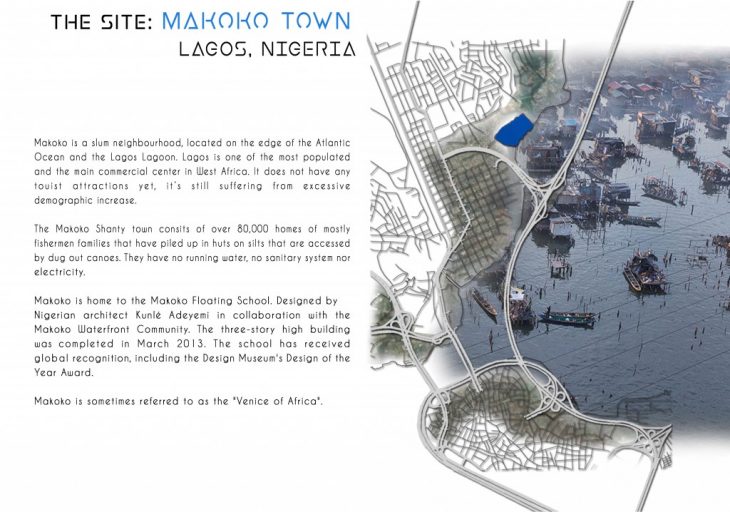

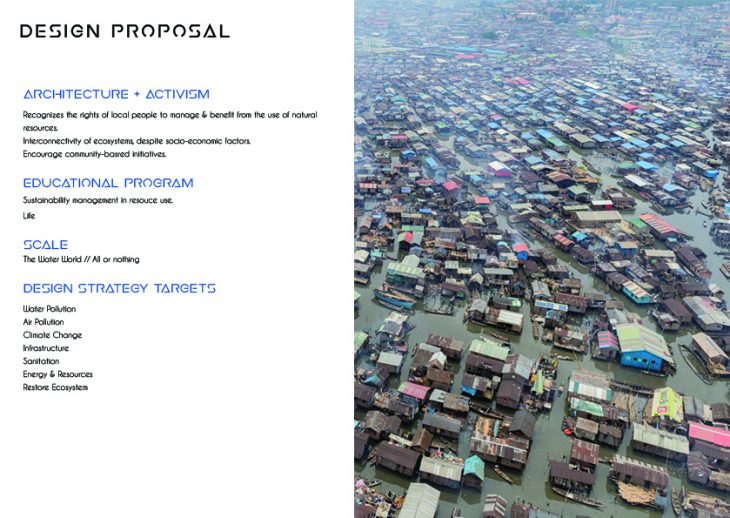
MASTER PLAN – L SYSTEM
Preserving the wetlands is a good place to start in educating the youth and the adults, about nature and how to live and connect with all sorts of ecosystems; despite socio-economic factors. Afterall everything in nature; including man, is mutually reliant. This plan is designed with the use of a bridging network, consiting of different water and air filtering auatic plants. The recursive nature of the L-system, leads to self-similar fractal-like forms can be easily distributed within the site. With the freedom of increase in recursion left in the hands of the community, the form slowly grows and becomes more complex in areas that the community decides requires more filteration.
The intent is a low-cost filteration system; with the use of available on-site resources, that targets the problematic situations in the site that stand as basic living obstacles. Doing so without the distruption of the existing lands is important, hence the disappearace of these lands could shake-up the ecosystem in more ways than one. This system may not be the most efficient but may well be the most effective, given the knowlege and resources availabe. This plan also allows the people of the community to develop skills in other feilds that could improve their well being.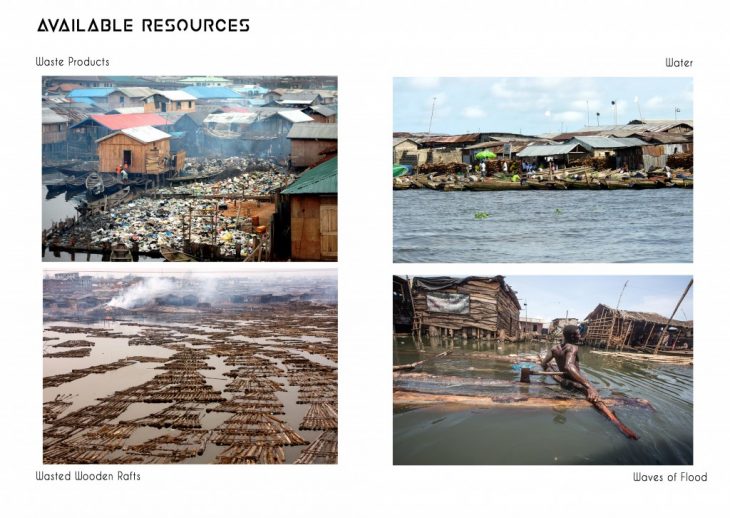
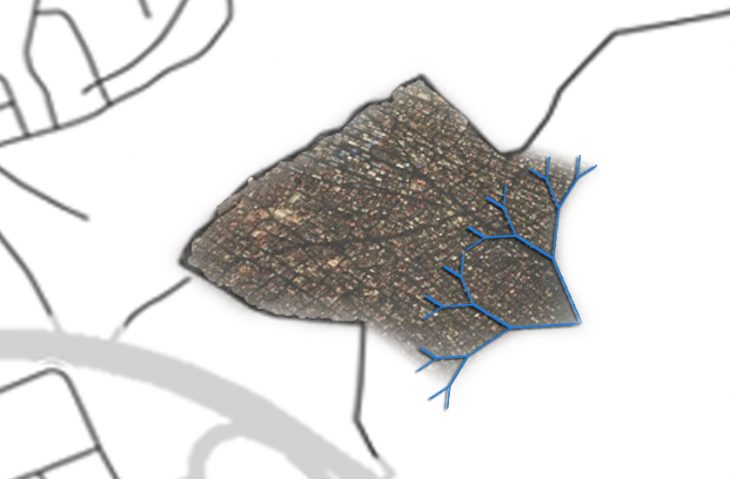
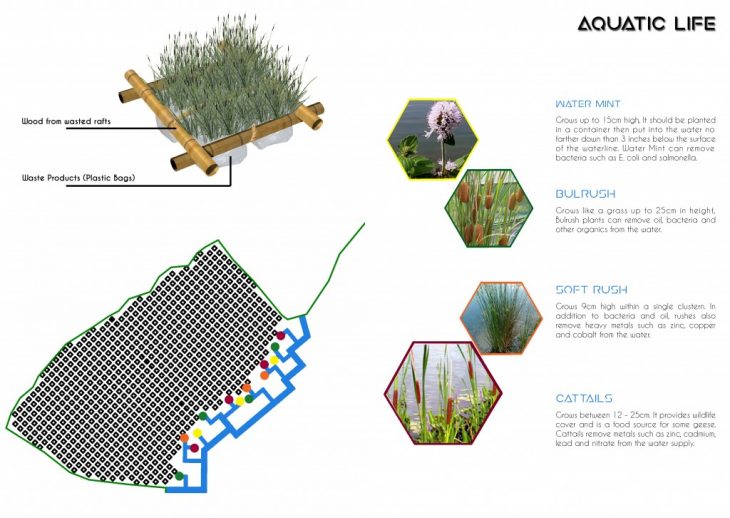
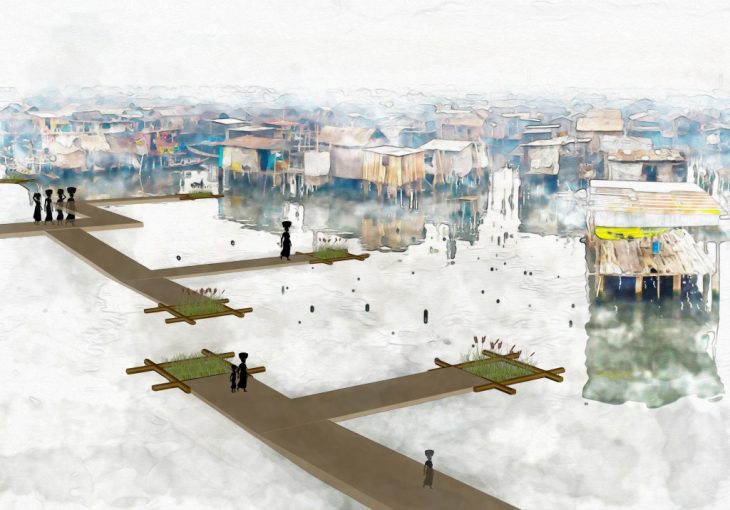
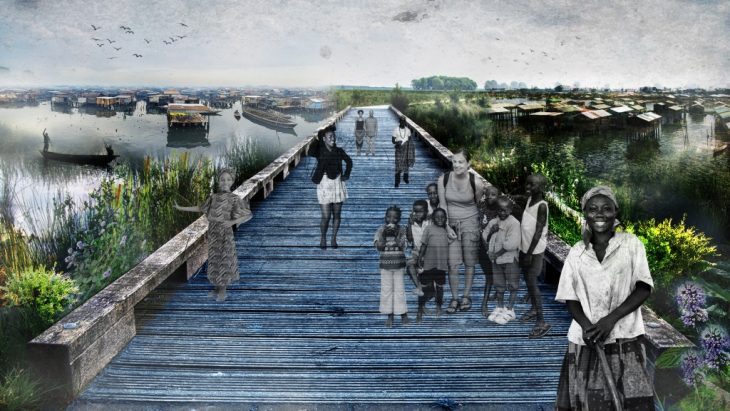
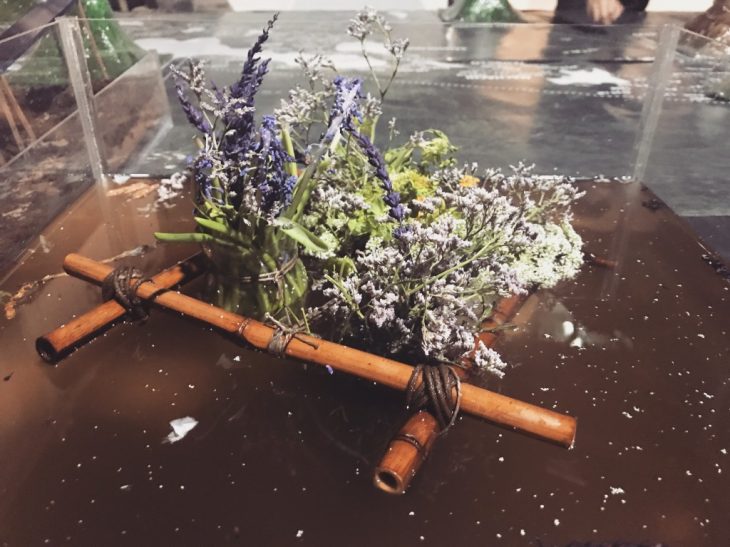
Botanic Aquafilter is a project of IaaC, Institute for Advanced Architecture of Catalonia.
Developed at Master in Advanced Architecture, in 2016/2017 by Antoinette El Chidiac
Tutors: Enric Ruiz-Geli, Mireia Luzarraga
Self Sufficient Buildings Studio